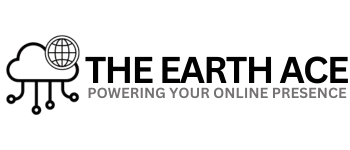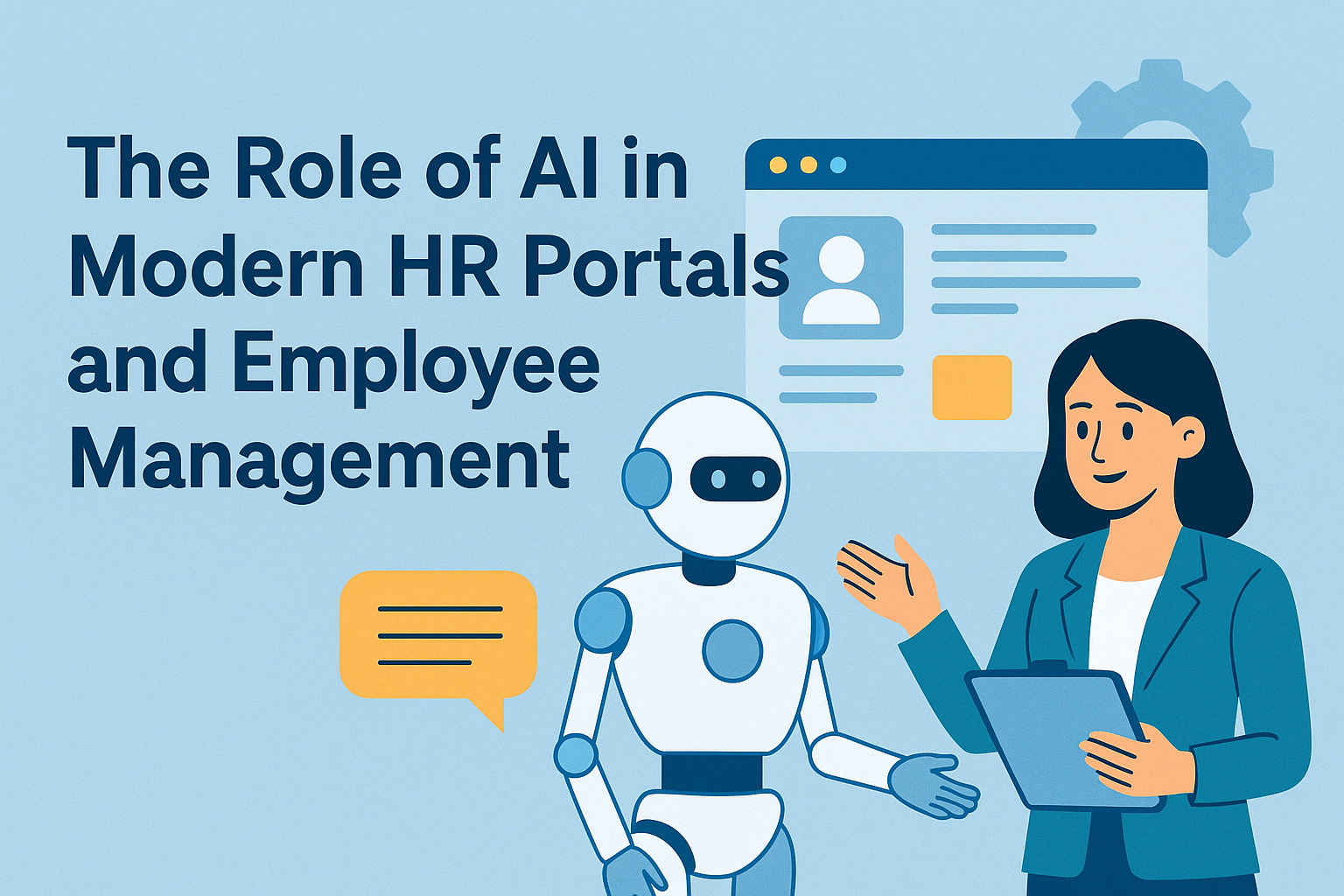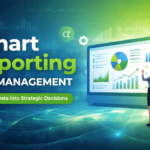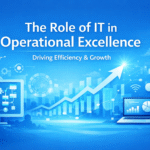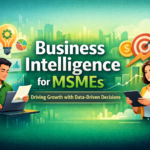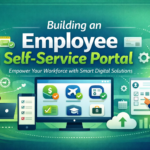The Role of AI in Modern HR Portals and Employee Management
In today’s rapidly evolving business environment, organizations are turning to innovative technologies to manage employees efficiently and create a productive workplace. Among these technologies, Artificial Intelligence (AI) has emerged as a game-changer. The role of AI in modern HR portals and employee management is not limited to automation but extends to personalization, data analytics, and predictive decision-making. Let’s explore how AI is reshaping HR functions and creating smarter workplaces.
AI-Powered Recruitment and Onboarding
Recruitment has always been one of the most time-consuming HR functions. AI-driven tools now streamline the entire process by scanning resumes, shortlisting candidates, and even conducting initial screenings through chatbots. This reduces human bias and speeds up the hiring cycle.
Modern HR portals equipped with AI also simplify onboarding. Automated workflows guide new employees through policy documents, training modules, and compliance checklists. This ensures that the integration process is smooth and engaging for fresh hires.
Enhanced Employee Engagement
Employee engagement is central to workplace productivity. AI in HR portals enables personalized communication and real-time feedback systems. Chatbots and virtual assistants can instantly address employee queries related to leaves, payroll, or policies, improving satisfaction levels.
AI-driven insights also help HR managers design tailored recognition and reward programs. By analyzing employee performance data, HR leaders can identify high achievers and motivate others, leading to stronger retention rates.
Performance Management and Training
Traditional performance reviews are often subjective and limited to annual assessments. With AI, HR portals now provide continuous performance monitoring. Smart algorithms analyze key performance indicators (KPIs), identify patterns, and generate actionable insights for managers.
AI also personalizes employee learning paths. Based on skill gaps and career aspirations, portals recommend targeted training modules, e-learning courses, and certifications. This not only boosts employee growth but also aligns talent with organizational goals.
Predictive Analytics for Workforce Planning
One of the most impactful roles of AI in modern HR portals and employee management is predictive analytics. AI can forecast employee turnover, identify departments at risk of talent shortages, and even suggest succession planning strategies.
For example, if data shows high attrition in a particular team, AI can highlight contributing factors such as workload or lack of growth opportunities. This empowers HR leaders to take preventive action, saving both time and resources.
Streamlined Administrative Tasks
Routine administrative activities like attendance tracking, payroll management, and leave approvals often consume valuable HR time. AI-enabled HR portals automate these tasks with high accuracy, reducing errors and freeing up HR professionals to focus on strategic initiatives.
Furthermore, AI chatbots are available 24/7, allowing employees to resolve queries anytime, thereby reducing dependency on HR staff. This efficiency translates into cost savings and improved employee experiences.
The Future of AI in HR
As businesses continue to embrace digital transformation, the future of AI in HR looks even more promising. From advanced workforce analytics to emotional intelligence tools, AI will play a pivotal role in shaping workplace culture and decision-making. Organizations adopting AI-powered HR portals today will gain a competitive edge in talent management tomorrow.
Conclusion
The role of AI in modern HR portals and employee management goes far beyond automation. It enhances recruitment, improves employee engagement, supports continuous performance management, and delivers predictive insights for better workforce planning. By embracing AI, businesses can create agile, data-driven HR ecosystems that foster growth and innovation.
